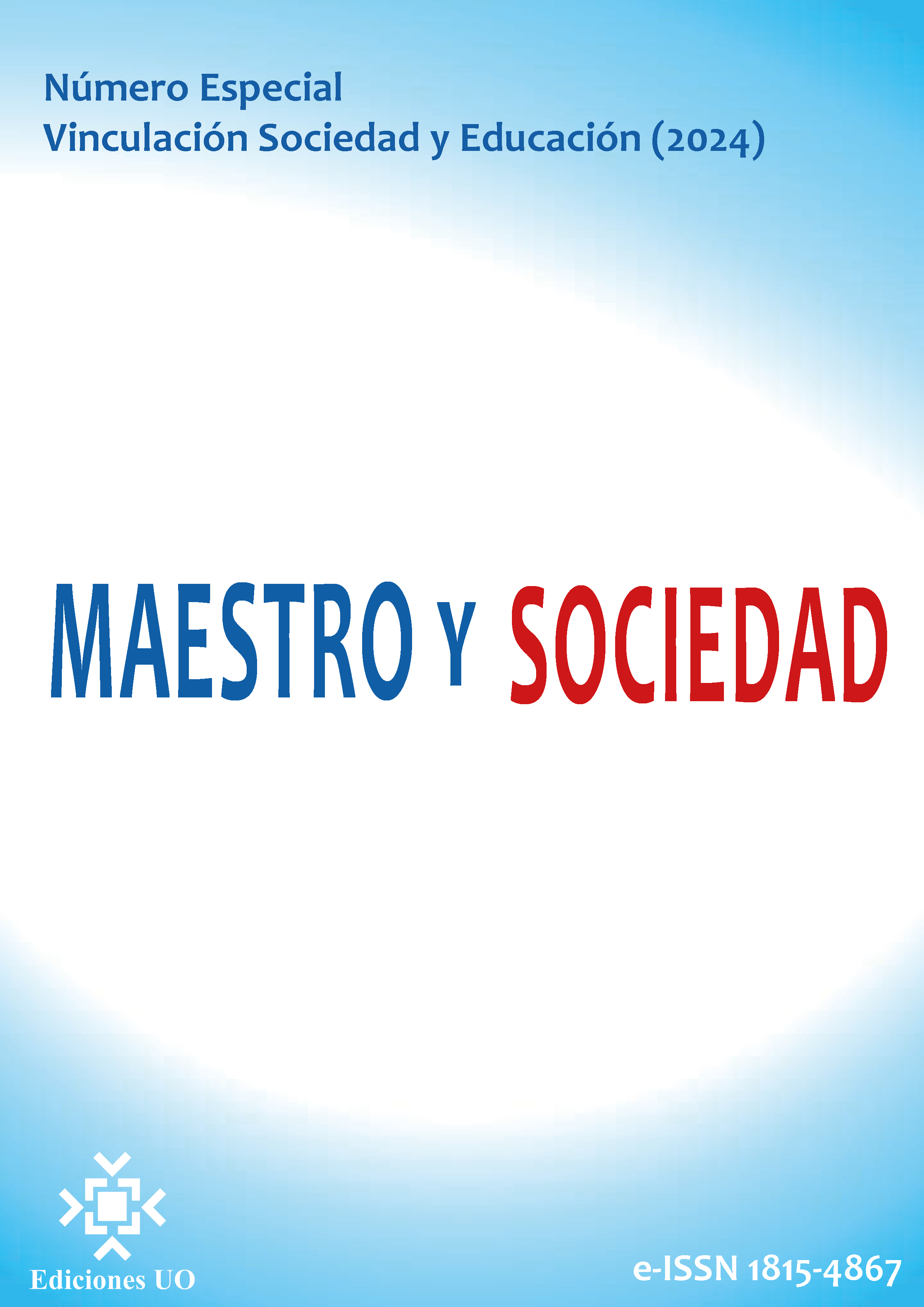Factors of responsibility of representatives, monitoring of student learning at UEFB
Keywords:
Teaching, education, commitment, processAbstract
Introduction: This research addresses the issue of the role of responsibility of the representatives and their learning factors in UEFB students, because education goes through various transformation processes where parents have taken the active role in teaching. The objective was to analyze the responsibility factors within the teaching-learning process at UEFB, this is how the two variables were significantly correlated in this research. Materials and methods: The interpretation is mediated by a bibliographic research position since it recovers the complexity and meaning of the social context to situate and bring them closer to the problem of study. 29 parents of UEFB students were selected as a sample. Results: The academic result of the students is the reflection of two parts that are in constant and work, the first is the educational unit and the second is the home. Parents consider 79.3% that the academic result of the students is due to their active asynchronous participation from home in the different activities delegated by the academic units. While 20.7% consider that the academic results of their children are not influenced by asynchronous participation from home. They may come to consider that the academic units are entirely responsible for the acquisition of knowledge and as a result, there are deficiencies in the learning process. Discussion: Institutions implement responsibility records, which 96.6% of parents would agree to sign, while 3.4% do not agree to sign records. The opinion of parents is essential and they considered that yes in 82.1% and 17.9% consider that teachers should be evaluated without generating opinions from parents. Conclusions: Thanks to the performance of parents in the development of knowledge at home with students, a better performance can be seen in conjunction with other actors in education such as the educational unit and educators.
References
Briceño, L. (2017). Factores que influyen en la adopción de las Tecnologías de Información y Comunicación por parte de las universidades. Dimensión Enseñanza-Aprendizaje. https://www.redalyc.org/articulo.oa?id=35652744018
Colectivo Educación infantil. (2014). Recursos educativos digitales para la educación infantil (REDEI). https://www.redalyc.org/articulo.oa?id=85331022002
Gómez, R. (2012). El conocimiento libre: una responsabilidad educativa. https://www.redalyc.org/articulo.oa?id=201024390016.
Guevara, O. (2013). Análisis del proceso de enseñanza aprendizaje de la Disciplina Proyecto Arquitectónico, en la carrera de Arquitectura, en el contexto del aula. https://www.tdx.cat/bitstream/handle/10803/116191/oega1de1.pdf
Krasilchik, M. (2022). Code of ethics for the teaching profession perceptions and opinions of educators. https://preprints.scielo.org/index.php/scielo/preprint/view/4616
Leyton, F. (2017). Hacia una lectura comprensiva de las estrategias de participación activa de los padres de familia en los procesos de enseñanza - aprendizaje de niños y niñas del grado preescolar. https://www.redalyc.org/articulo.oa?id=643767439008
Loya, C. (2017). La participación de los padres de familia en el ámbito de la RIEB. https://redib.org/Record/oai_articulo1839931-la-participaci%C3%B3n-de-los-padres-de-familia-en-el-%C3%A1mbito-de-la-rieb.
Macias, B. (2012). Algunas consideraciones teóricas sobre el proceso enseñanza–aprendizaje. https://www.redalyc.org/articulo.oa?id=551757272013
Montes. U. (2022). En el 2022, transformemos la educación para un futuro con más esperanza: UNESCO. https://mexico.un.org/es/169880-en-2022-transformemos-la-educacion-para-un-futuro-con-mas-esperanza-unesco
Ordoñez, D. (2009). Factores que influyen en el éxito de la reunificación familiar. https://www.redalyc.org/articulo.oa?id=65415751007.
Pérez, M. (2021). Aprendizaje. https://conceptodefinicion.de/aprendizaje/
Touriñan, J. (2019). La relación educativa es un concepto con significado propio que requiere concordancia entre valoresy sentimientos en cada interacción. https://www.redalyc.org/journal/4418/441857903007/html/
Published
How to Cite
Issue
Section
License
Copyright (c) 2024 Zoila Beatriz Farfán Talledo, Carlos Enrique Chica Medranda

This work is licensed under a Creative Commons Attribution-NonCommercial-NoDerivatives 4.0 International License.
This journal provides immediate open access to its content, based on the principle that offering the public free access to research helps a greater global exchange of knowledge. Each author is responsible for the content of each of their articles.



























 Universidad de Oriente
Universidad de Oriente 